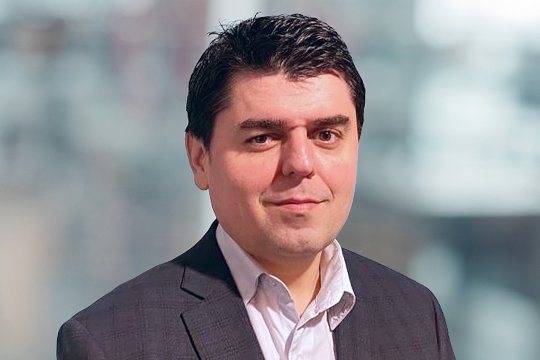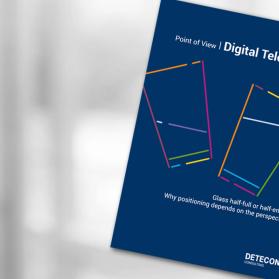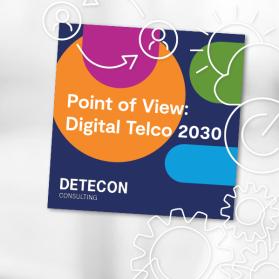The next few years will see a lot of changes on highly competitive markets. If future regulations do not have too great an impact on NB-IoT, LTE-M, or campus networks, these markets have great potential. Detecon Senior Consultant Alexandru Banu asked Frederico Homberg, Deutsche Telekom, three questions about his point of view on the new telco game.
Detecon: What overall developments do you see happening in wholesale in the coming years?
Homberg: Wholesale will become increasingly important! There are three primary reasons backing up this statement. Owing to their relatively small footprints in comparison with OTTs, telcos cannot hope to match the scale of these providers at the application/service level, e.g., by buying or even producing their own TV content. The key to their future success will be found in cooperation with other wholesale carriers and OTTS in selected areas, enabling them to offer a global footprint and, more importantly, to offer end-to-end products to customers. The keyword here for carriers is “co-opetition”.
What form do you expect future wholesale partnerships to take in the light of important topics such as 5G network rollout?
5G is only one element. Other developments such as the virtualization of network elements and softwarization open the door to communications products featuring highly flexible programming that can be delivered to customers via microservices and APIs. This will allow carriers to offer their own connectivity and services as well as to aggregate partner connectivity and services under one roof so that they can act as a platform — just as Amazon is a platform for both its own products and partner products. Carriers become networks of networks.
2030 is far away. If, however, you were asked to name the key drivers from the content market that you think may have an impact on the industry nine years from now, what would your response be?
One direction in which carriers are already heading is a shift from dedicated to software-driven carrier solutions. Silo voice, data, and messaging services previously produced in different network stacks will be replaced more and more frequently by IP-based services capable of producing all kinds of services. For instance, previously central firewalls will be replaced by context-aware application security (zero trust network, secure access service edge). While “mobile” is basically best effort today, in the future we will have context-aware QoS enabled by dedicated network slices. This context awareness will generate an entirely new selling proposition for carriers: from selling bandwidth to selling customer experience where every device is served by precisely the connectivity it needs. Dynamic and context-aware, from dumb and passive to smart and active.
Thank you for the interview!
Federico Homberg is the Head of Business Development & Innovation at Deutsche Telekom Global Carrier. In this role, he is in charge of the development and realization of growth opportunities in international wholesale. In addition, he assesses the potential of new technologies revolving around 5G SA, the virtualization of network functions, software-defined networks, XaaS, or the delivery of new wholesale products via APIs. Prior to joining International Mobile Wholesale, Federico worked in multiple positions at Deutsche Telecom, including International Mobile Wholesale, Group Business Development, and Group Strategy. Before joining Deutsche Telekom, Federico worked as a management consultant. Federico holds an MBA from the University of Mannheim.








